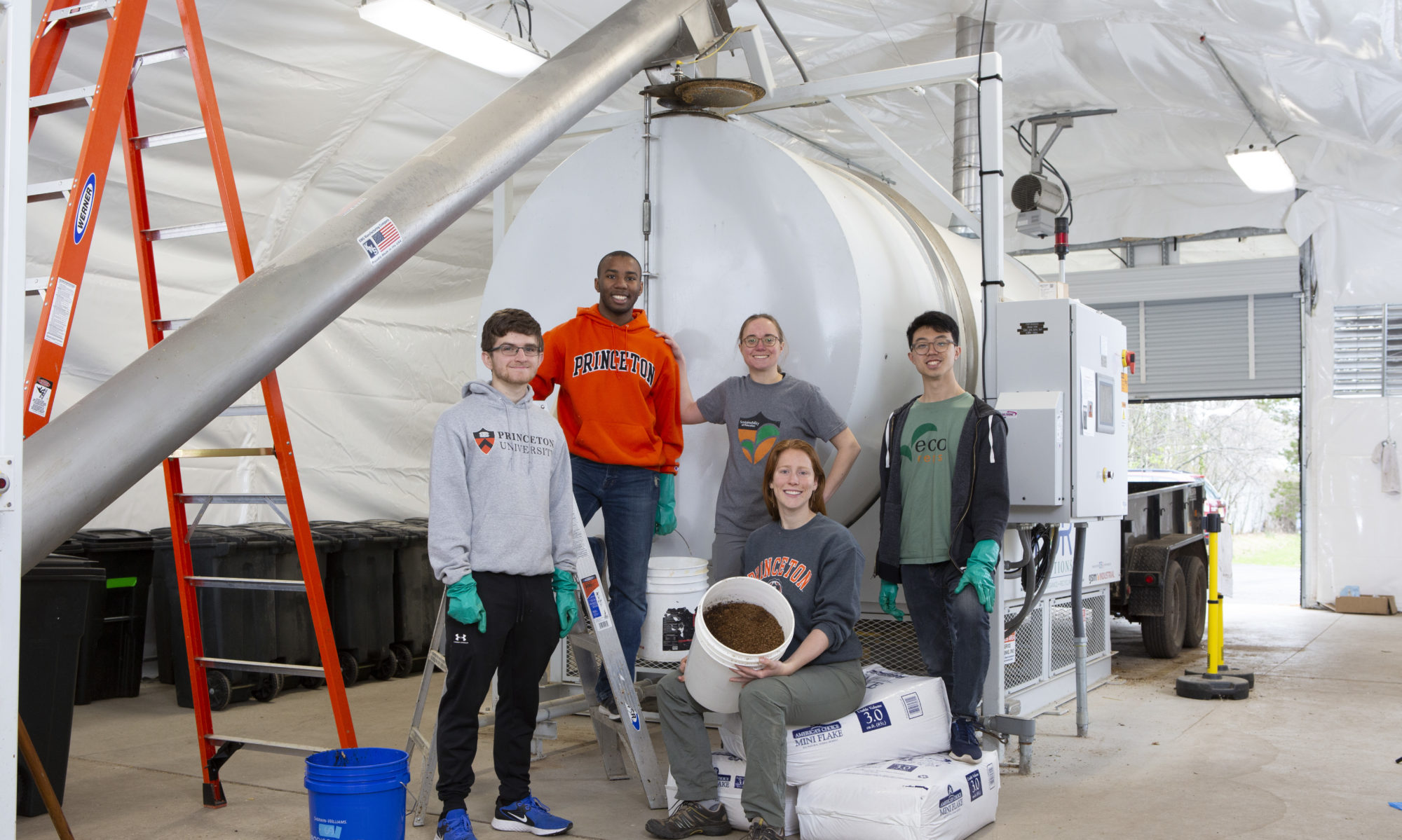Happy first day of classes to the Princeton community!
To ring in the start of the ’22-23 academic year, we’re featuring a Q&A with Sessina Dani ’23 who examined Princeton’s composting habits and the ways that people think about composting. Hear what she had to say about our composting system and the “bottom-feeder” organisms that make composting possible:
How did the S.C.R.A.P Lab help you learn more about composting at Princeton?
I was writing a paper on our relationship with composting organisms as a campus and as individuals for an anthropology class entitled “We Were Never Alone: Multispecies Ecologies in the Anthropocene,” taught by Professor Agustin Fuentes. I wanted to learn more about how Princeton University as a broad entity, and as a sum made of its parts, was conscious of and interacted with the composting organisms that sustainable food systems often rely on. Therefore, learning about the S.C.R.A.P. Lab was not only central to the research question but also my first introduction to Princeton’s composting system
What was your biggest takeaway from your research?
My research was focused on an anthropological lens, and it helped me gain a deep appreciation for composting organisms and other decomposers in the wild and inside our bodies. I had no idea the breadth of services that composting organisms offer and how that compares to their roles in the wild. I want to be really mindful of how and what I feed a compost pile and how to care for our composting friends like I care for my own digestive bacteria.
What do you think Princeton students should know about the university’s composting strategy?
I think more students should know that the composting system exists and that that is the purpose of the food chutes [in the dining venues]. I chose this term project because I was curious about how prevalent the composting system was in the periphery of students’ minds, and I found that there were even some dining employees that didn’t know what the food chute was really for. I think learning about the Forbes Garden really illuminated how full-circle our food system can be, and how awesome it could be if all students knew about and paid attention to how they interact with their campus’s food system, including the composting system.
What did you enjoy most about your project and work through the S.C.R.A.P lab?
I had an awesome time talking to students and Gina! I actually got inspired to intern at the Zhang lab this summer, which is the lab that works on sequencing the microbes in the compost pile because it was really awesome to learn about how interdisciplinary composting research could be. Although I didn’t work on the S.C.R.A.P. lab this summer, I enjoyed learning more about how microbes participate and fuel nutrient cycling. I think the Campus as Lab initiative is a great opportunity for students to learn about sustainability in their everyday practices here on campus, like mealtime. I’m really excited to learn more about Princeton’s composting system and get involved with the S.C.R.A.P. lab this fall!
Interview conducted by Abby Van Selous, Office of Sustainability summer intern
Fall Semester Composting Update
While we have not yet started composting wasted food from Princeton’s retail dining venues, we have begun small-scale food scraps collection, by restarting coffee ground pick-ups at the Coffee Club!

